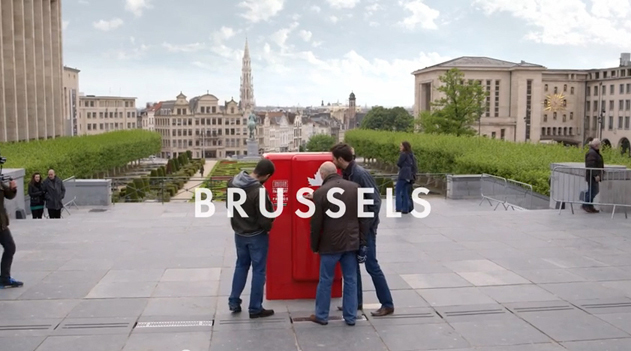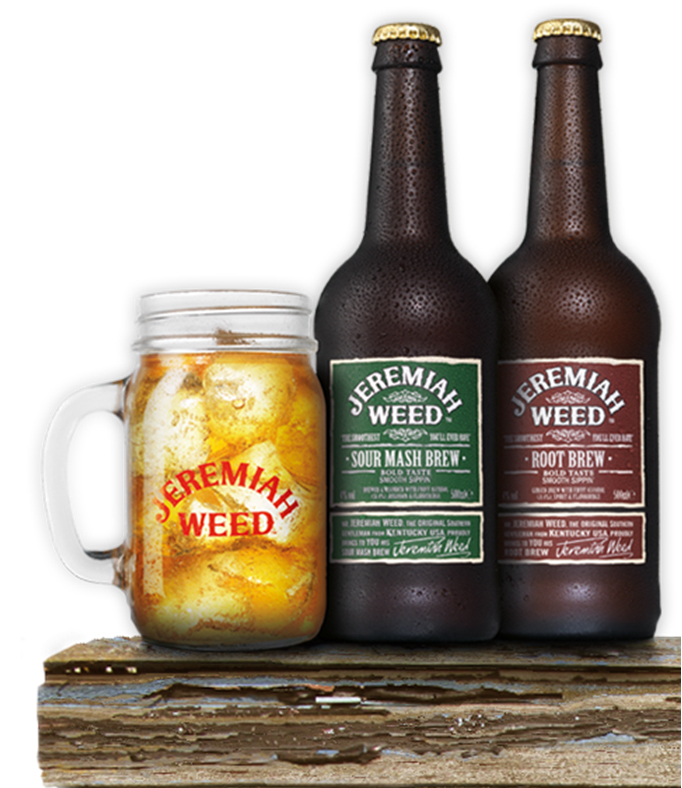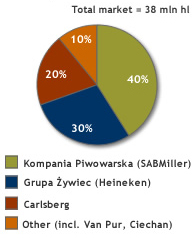What’s happened to Belgian media? Have they grown tired of complaining against price hikes on beer? Or are they saving the news of an 8 percent tax hike on beer, effective 1 August 2013, for the silly season next month, when brewers will have little choice but to pass the tax increase on to consumers?
The city of Palma de Mallorca in Spain is seeking to regain control of its beaches from hordes of unruly tourists who indulge in binge drinking, German media reported.
The convalescing former boss of SABMiller, Graham Mackay, is one of the best-paid bosses in Britain, UK media reported at the end of June 2013.
If you don’t own one, buy one. This seems to be SABMiller’s policy when it comes to cider brands. In an effort to better compete against the popular Swedish cider brand Rekorderlig in Australia, SABMiller and the Swedish Kopparberg Brewery have entered into an agreement for the long term licensing of Kopparberg cider products in selected markets. The deal was announced on 18 June 2013.
Cider may be a very lose definition applying to all kinds of alcoholic beverages. But it remains to be seen if it is as elastic to include Diageo’s Jeremiah Weed brand, which was recently been rebranded as a “Kentucky style cider brew”. What’s that? Exactly.
Faced with falling beer sales in UK pubs, which were down by almost 50 million pints in the first quarter of 2013, compared to the same period last year, the UK’s major brewers decided to plough millions of pounds into a joint TV campaign which was launched at the end of June 2013.
The spring barley crop in Europe varies greatly from region to region. The late sowing and the regionally wet and cold spring left its mark. In certain regions, drought is also a topic. However, there is talk of regeneration, which doesn`t guarantee yield and quality though. Beyond that, diseases have to be taken into account.
The UK’s on-premise sector will shrink by a further 7,704 outlets over the next five years, with most closures coming in the next two years, according to a new forecast by CGA, a consultancy firm. There are now around 50,000 pubs serving Britain.
A consolidator of the Polish market of regional beers has emerged. Gontyniec Brewery from Wielkopolska bought the Konstancin Brewery for PLN 2.54 million (USD 800,000) in April 2013 and is now planning further acquisitions.
It is not easy to track down a brewery in Austria which can be described as a craft brewery. “What do you mean by craft breweries? Strictly speaking, craft breweries do not exist in Austria”, according to information initially received from the Verband der Brauereien Österreichs (Association of Austrian Breweries), at least not as they exist in the United States, Belgium or Holland. “But there are already a large number of breweries with a creative assortment of products, each with their own taproom and an interesting story,” comes the reassuring response. Small, emerging breweries, some of them with quite innovative beers, are coming out the woodwork. Since the year 2000, the number of small breweries in Austria has almost doubled. About three years ago, the brewery “Schwarzbräu” joined the ranks.




